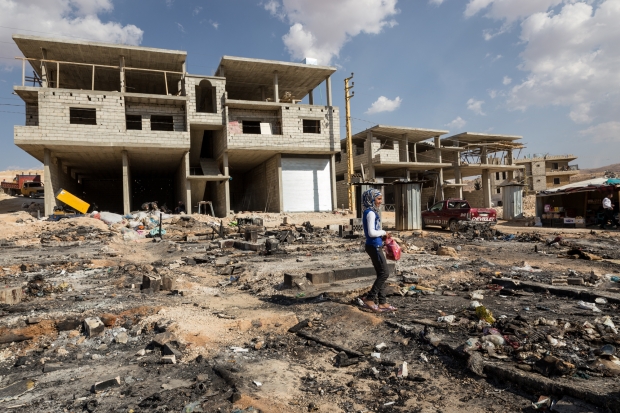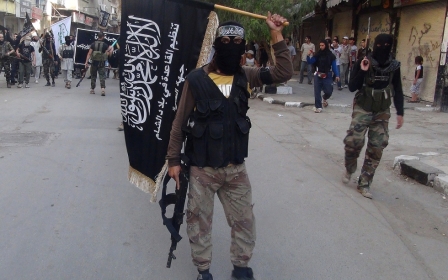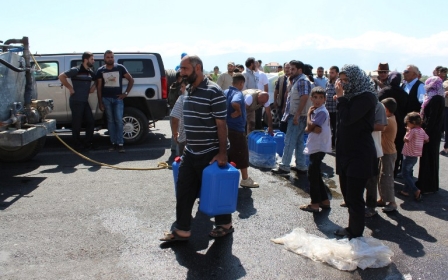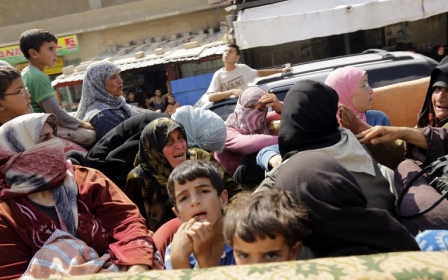Arsal tries to heal after 5-day battle
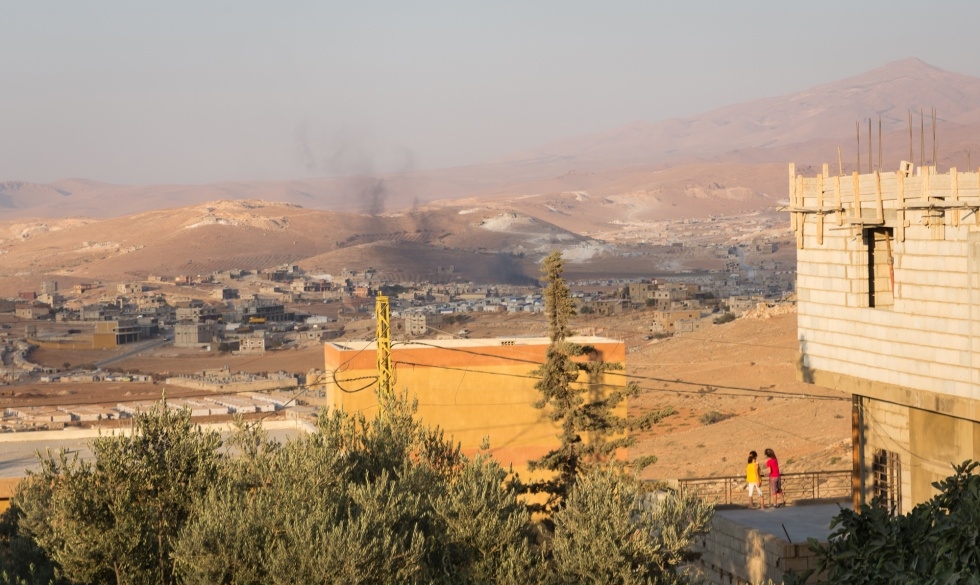
ARSAL, Lebanon - More than a fortnight after the fierce five-day battle early this month in the isolated hilltop border town of Arsal, home to tens of thousands of Syrian refugees, Doctor Kasem Mustafa al-Zein says he is exhausted after tending to hundreds of wounded at a local field hospital.
"In Arsal, there is no protection for refugees living in tents. There was shelling and snipers taking positions on the mountains above," Zein said of the fight between the Lebanese army and Syrian rebels. "It was too dangerous for us to collect the wounded. On the last day, several bodies were retrieved from homes where they had bled to death during the fighting."
Fears that fighting will resume have intensified after a video was released on 23 August showing Lebanese police and soldiers captured in the battle, with threats to kill them unless Hezbollah militia leave Syria. Nearly 30 Lebanese security personnel are at present in captivity, while 19 Lebanese soldiers were killed in the fighting.
Zein compares this month's clashes to the fighting he lived through in the Syrian town of Qusayr last year, when Assad forces and Hezbollah forces retook the town from rebels. Syrians, including Zein, fled the town by foot at night, carrying wounded patients as they crossed the wild Qalamoun mountain range and Lebanese border until they reached Arsal.
Arsal's violence erupted on 2 August when the Lebanese army arrested at a checkpoint Imad Ahmad Jomaa, a rebel commander who had recently sworn allegiance to the Islamic State (IS).
Armed men materialised from nearby refugee camps, while hundreds of IS and JN fighters descended from the mountains to attack army and police posts inside Arsal. Mortar and gunfire pelted the town.
Doctors at the field hospital worked non-stop, treating 485 wounded; 60 people were buried in the nearby cemetery. Hundreds of tents were burned to the ground, leaving large numbers of refugees again homeless.
Recruited by Lebanese Prime Minister Tammam, elders of the Salafi Muslim Scholars Committee brokered a fragile peace on 7 August. The Syrian militants withdrew to a mountainous no-man's land hemmed in between Assad forces and Hezbollah on one side, and the Lebanese army on the other.
"The intervention of the Muslim clerics was not so much strategic as it was symbolic," said Lina Khatib, director of the Carnegie Middle East Centre in Beirut. "It is sending a message to the Sunni population that Sunni extremism is not tolerated by the religious Sunni establishment in Lebanon."
Since then, demands from the fighters include the withdrawal of Hezbollah from the war in Syria, the release of prisoners from Beirut's Roumieh prison, and better treatment for Syrian refugees inside Lebanon. The 23 August video released by JN underlined the demands and increased local concern.
"We are still scared, we don't feel secure. The gunmen are still on the border," declared Abdul Wahad, an Arsal municipality worker and owner of a local quarry mine. "We have no guarantees this is not going to happen again, especially since they still have hostages."
Animosity in Arsal, traditionally a cross-border smuggling town, has been building for months. As forces loyal to Assad and Hezbollah successfully fought to control the Qalamoun mountain range along the Lebanese border last year, Syrians poured into Lebanon to escape the violence.
"The fighters thought to make a refuge out of Arsal because their other towns are under control of the Syrian Army," said retired Lebanese army general Elias Farhat.
Arsal's predominately Sunni Muslim population of around 35,000 is now outnumbered by Syrian refugees. According to the UNHCR, there are 42,000 refugees in Arsal, but unofficial estimates are much higher.The town's residents are largely sympathetic to the Syrian rebellion, unlike the neighbouring Shi'ite town of al-Labwe, which supports Hezbollah's fight inside Syria alongside Assad forces.
Overall, Lebanon hosts more than 1 million of the nearly 3 million officially registered Syrian refugees region-wide. Most are impoverished and face fast-rising rents, little access to education and health care, and exploitative work conditions when they can find employment. In Arsal, a scarcity of water, electricity and jobs compound the dire living conditions on the hill.
"We have a big economic problem," said Abdul Wahad. "We depend on two things - getting rocks from the quarry, and the annual cherry harvest. The harvest was wiped out because the gunmen were there, and all quarry work has stopped because our workers are Syrian and the army isn't allowing them to go there."
The municipality is now studying how to limit the town's refugees to just women and children, for "humanitarian reasons," and enforcing a ban on weapons in the camps. The Lebanese army has checkpoints on Arsal's periphery, but is not posted inside.
"Arsal's residents wouldn't object if the army came inside the area," said Zein. "However, we have concerns. If they have checkpoints they will arrest everyone without legal papers - and most people don't have them."
Saudi Arabia has just donated US$1 billion to Lebanese security forces to beef up counter terrorism, a measure of its recent concern with extremist groups. Arsal, Tripoli and the Palestinian camp of Ein el Helweih are identified as areas of high volatility.
"The Lebanese army has been able to stabilised the situation in Arsal for the time being," said Lina Khatib. "However, they have not been able to totally control the area. The border with Syria remains porous, and it's still likely that more rebels will be able to enter Lebanon and engage in new battles further down the line."
Support is strong for the Lebanese military operation in al-Labwe, a Shi'ite village at the foot of the hillside road leading to Arsal.
Khalil Ali Etawi, 54, is a vegetable-stand owner and Hezbollah supporter. He believes it was the Syrian war that started the bad blood between the two towns. "This area is going to be the cemetery for all those gunmen who have fought in Syria's holy places," he said.
But most often it is civilians who pay the price. On the morning of 4 August, a Syrian mother teamed up with her friend, a mother from Arsal, to drive their four children to safety during a lull in the fighting. Their car never made it past the first Lebanese army checkpoint. Hit by a shell, all six were instantly killed. Their bodies are buried at the field hospital's cemetery.
Middle East Eye propose une couverture et une analyse indépendantes et incomparables du Moyen-Orient, de l’Afrique du Nord et d’autres régions du monde. Pour en savoir plus sur la reprise de ce contenu et les frais qui s’appliquent, veuillez remplir ce formulaire [en anglais]. Pour en savoir plus sur MEE, cliquez ici [en anglais].


